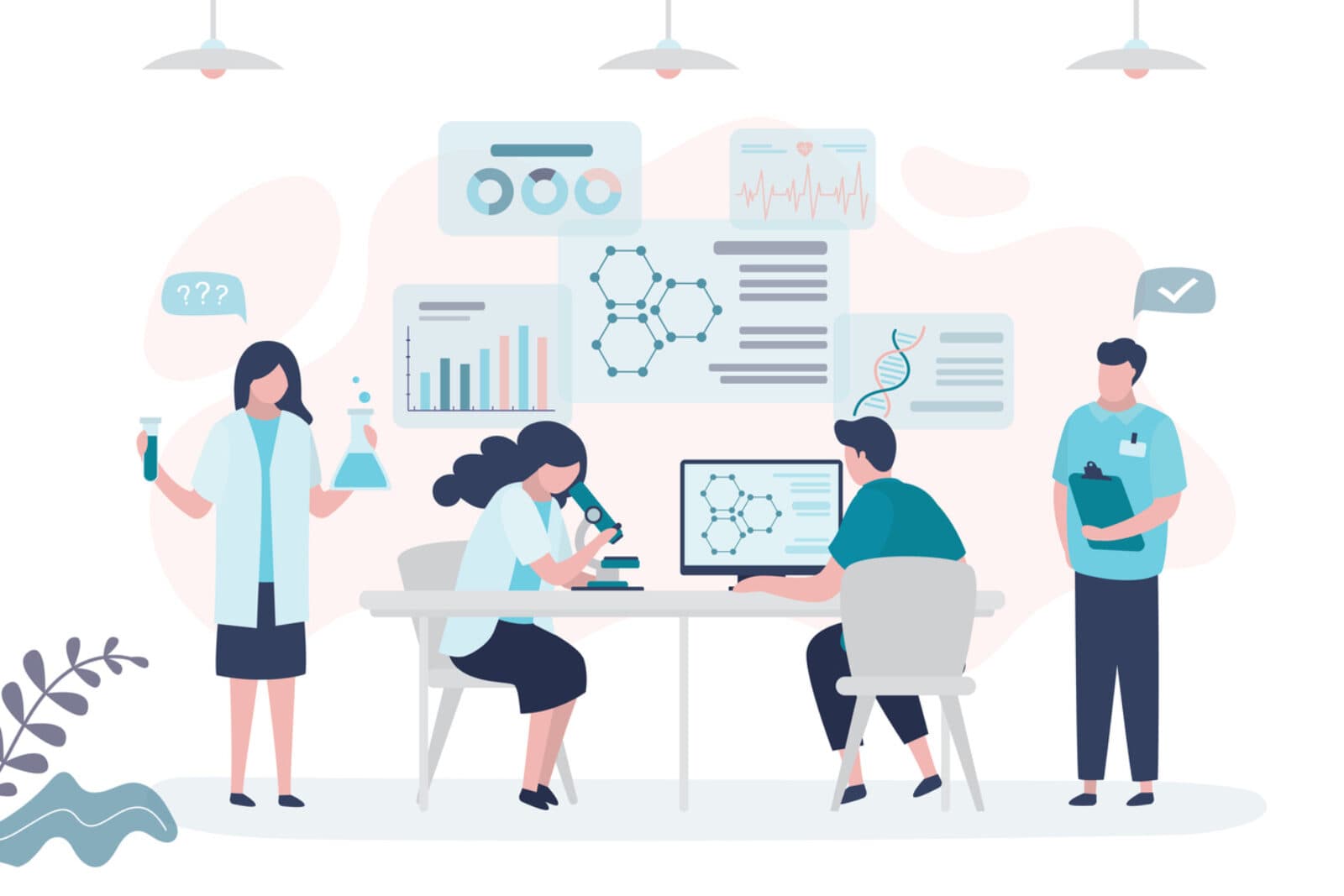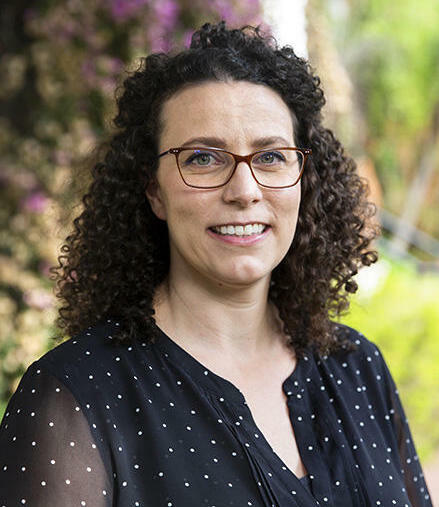Out of the Lab, Into the World
Lea Witkowsky, executive director of the UC Berkeley Kavli Center for Ethics, Science, and the Public, creates opportunities for students to explore social and ethical dimensions of scientific discoveries

As a graduate student at UC Berkeley studying gene regulation in the wake of the discovery of CRISPR-Cas9, Lea Witkowsky enrolled in a new seminar course about genome editing. During the first class, the professor opened the floor to suggestions for future discussion topics. Witkowsky said, “Could we do something on the ethics of the uses of CRISPR and genome editing?” The responses from her peers that day surprised her. Some thought it would be interesting, but weren’t entirely sure it was their place to discuss it. Others maintained that ethics was outside of their purview as scientists. Some disagreed that there were any ethical concerns to discuss in the first place.
“That was the moment I realized that in our training as scientists in a field that’s more focused on basic science, we don’t receive any opportunities, let alone training, to think about how the applications of the things we’re working on may impact people in the future,” said Witkowsky.

She is now in a unique position to change this for future scientists, as she serves as executive director of the UC Berkeley Kavli Center for Ethics, Science, and the Public. In her former role as the policy and engagement manager at the Innovative Genomics Institute, she helped found the Berkeley Ethics and Regulation Working Group for Innovative Technologies, with the intention to create a space for scientists to have conversations about societal impacts and ethical considerations, with input from experts in the humanities.
The involvement of scholars in the humanities is an important feature for Witkowsky, who describes her background as “a little unusual for a Ph.D. scientist.” Both her parents are artists, which helped inform her identity as a scientist and how she views science interacting with society at large. “I think about how we understand the world around us through different kinds of question-asking, and how different people see the world through different lenses,” she said.
For Witkowsky and the team at the UC Berkeley Kavli Center, their lens is now focused on their first cohort of Kavli Fellows: graduate students and postdoctoral scholars in the sciences, humanities, social sciences, and professional schools who are interested in exploring ethical challenges, advancing solutions, and identifying ways of involving impacted communities and the public in science and technology. To be announced in early 2023, the inaugural fellows will be a key feature of the Kavli Center’s work to build a transdisciplinary community of research and learning that breaks down barriers between disciplines and across academia and society.
“The fellowship is directly connected to my experiences — and lack of experiences — as a graduate student. For me, the exciting thing about the Kavli Center is the chance to take all my experiences and turn them into a program that I think is going to help not only scientists but also folks in the humanities to be able to communicate better together and with the public – the people who the scientific advances will have an impact on.”